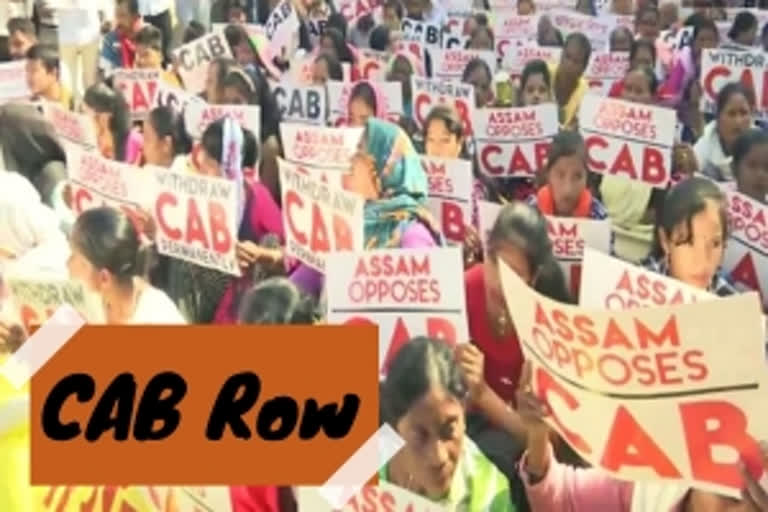New Delhi:In a celebratory mood, the Manipur government may have declared Tuesday a public holiday to rejoice the inclusion of the border state under the Inner Line Permit (ILP) system. The Assam government may go to town over the government's expressed intent and support to include six of the state's communities as Scheduled Tribes (ST).
But students, the main force in Northeast India, leading the anti-Citizenship Amendment Bill (CAB) movement, are not at all convinced.
"The government is playing divisive politics and wants to divide the people of the region. But the NE is one and united on the anti-CAB protest. Our movement will continue because all we are hearing are verbal assurances and are convinced that the government is just biding for time," Lurinjyoti Gogoi, general secretary of the powerful All Assam Students Union (AASU) told ETV Bharat.
"ILP has been ineffective. Despite being protected by the ILP, why are there periodic clean-up drives in Arunachal Pradesh to stop outsiders from entering and settling down? And the government has already admitted that the ST status issue will be possible only after a year at least. We have been taken for a ride for long, so how can we believe these latest overtures?" Gogoi asked, adding that even after the Union home minister's announcement in the Lok Sabha on Monday, AASU's counterparts in the other NE states have expressed solidarity and a commitment to continue with the anti-CAB stir.
The NE region, with fragile demography comprising numerous ethnic communities, castes and tribes and a delicate ecology, has borne the brunt of an illegal exodus from Bangladesh. As a result, there is an overriding fear of danger to their economic, social and cultural interests.
Read:|'BJP bagged five seats in NE because our support', claims Bodo rebel group
Shah, while tabling the CAB in the Lok Sabha on Monday, had announced these measures keeping in mind the rising rage and concerns among people from the NE region over the CAB provisions. "We are including Manipur in the Inner Line Permit system, this big issue has now been resolved. I thank PM Modi on behalf of people of Manipur for fulfilling this long-standing demand."
